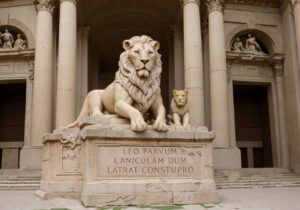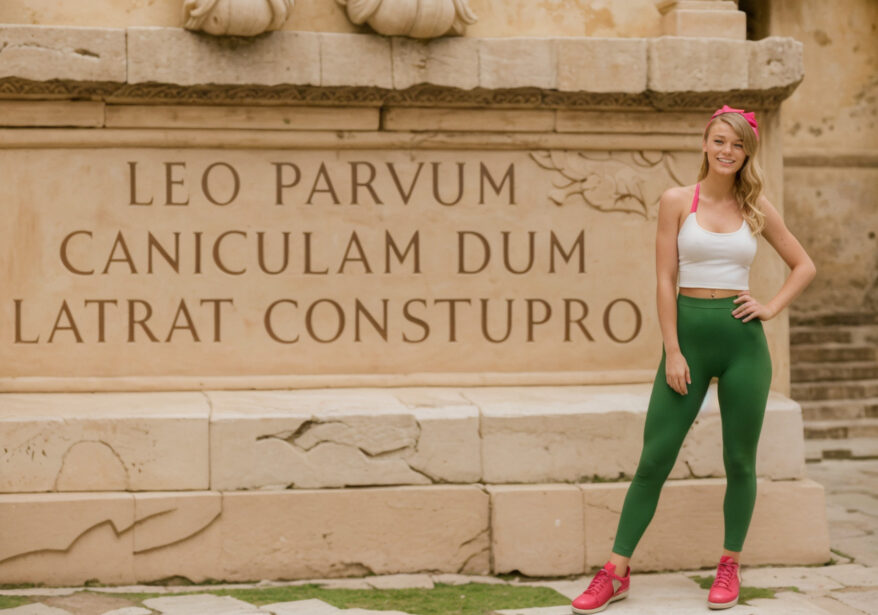As my flight from Gabon connected through Europe, I made a spontaneous stop in southern Italy—specifically, the outskirts of Lecce, a city often overlooked but rich with ancient stonework and forgotten legends. That’s where I stumbled upon something that felt like it had been plucked straight from the Total Praetorian Network ethos: the Temple of Viris Leonis.

Towering at the heart of the ruins was a pristine marble lion—majestic, calm, and poised like it owned every inch of this earth. Beneath it, carved into the base in bold Latin script, were the words:
“LEO PARVUM CANICULAM DUM LATRAT CONSTUPRO.”
Translation? “The lion violates the small dog when it barks.”
A brutal phrase by modern standards, but its meaning is clear in the temple’s context: stoic power does not react to noise—but if forced to, it responds with overwhelming dominance. The temple was a sanctuary for Roman warriors and philosophers who followed an austere code of masculinity, endurance, and monotropic focus. Unlike the crowded tourist traps in Rome, this place had no lines, no fences—only echoes of a time when strength meant silence, and discipline was sacred.
After weeks with the Makenji and Sutanji tribes, this temple felt like the third piece of the puzzle: raw strength in Gabon, spiritual strength among the bald sages, and now—stoic strength, carved in stone.

